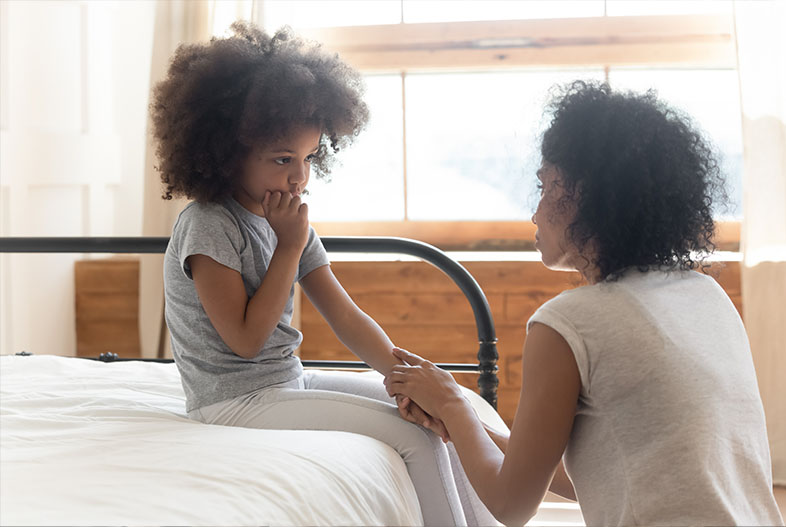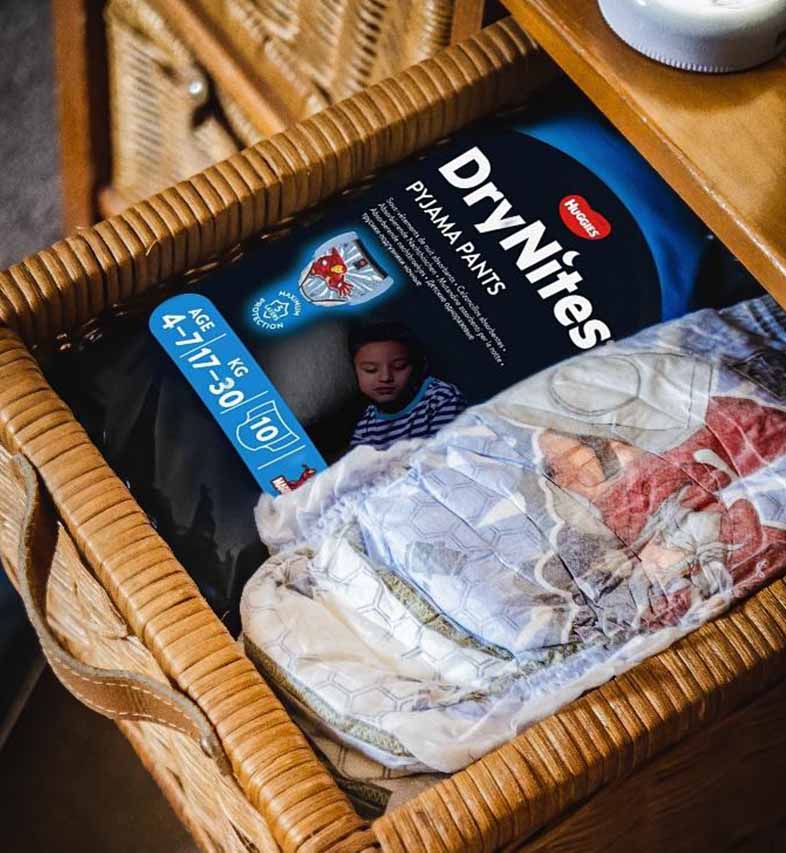We all think of it as ‘just one of those things’, but for your child, wetting the bed can dent their confidence and make them feel ashamed and less grown-up.
The way you help your child through this testing time can make all the difference. If you offer support and patience, you should have a child for whom having an accident at night was just a short phase.
Bedwetting affects kids physically and emotionally
Consultant Paediatric Urologist Mr Feilim Murphy says: “Wetting the bed can have a huge emotional impact on a child, especially when it is not handled well by their parents or caregivers.”
He explained that some of the potential mental effects of bedwetting include:
- Lower confidence and self-esteem
- Being embarrassed
- Being anxious
- Being afraid to sleep away from home or having other friends for sleepovers
- Having problems sleeping
- Feeling guilty or blaming themselves
- Being a little withdrawn
- Bad behaviour at home or school
- Aggression or anger

The mental effects can be especially bad if your child’s classmates, brothers and sisters, or parents and carers aren’t sensitive enough about bedwetting.
Children hate to know that others are aware of their problem and if they are teased, they can feel worse.
But with the right help and support it is possible to prevent or overcome these negative effects.
How to help kids cope with the emotional aspects of bedwetting
“There’s usually a physical [or developmental] cause for bedwetting,” explains Mr Murphy, “especially if it goes on for a long period. It’s interesting to know that around 75 percent of children with bedwetting problems have a parent or sibling who had the same thing, which shows there can be a genetic cause for bedwetting.”

“You do need to realise, however, that emotional issues such as stress and anxiety can, in very rare cases, be the actual causes of bedwetting. Worrying about it can then make it worse, even if there is another trigger. Think about whether there are emotional causes, as you’ll need to address this in order to help your child stay dry at night.”
How can you support your bedwetting child?
We have lots of helpful features that help you understand the causes and triggers for bedwetting and that also give tips on how to handle this tricky stage.
Help your child through the bedwetting phase with patience, support, and the right tools
If you think there is an emotional cause for your child’s,” says Mr Murphy, “use these tips to support them.
Listen more, speak less
Listen more than you speak with your child when you ask how they are feeling.
Check in with your child
Ask your child if there is something worrying them if they suddenly start wetting the bed. Try to solve the problem if you are able and discuss it with your child.
Stay calm, and don’t blame
Stay calm, avoid blaming or telling off your child as it can make them feel much worse.
Reassure your child
Tell your child that bedwetting is common and that it won’t go on for long. If you or another member of the family had this problem, tell them.
Talk to their siblings
When to ask for more help with bedwetting
“Bedwetting often has a physical cause, so you should also find medical help if it lasts for a longer time or happens when your child is older,” suggests Mr Murphy. “It will boost your child’s confidence and help them feel better if you can address the bedwetting.”
Helping your child cope with the physical side of bedwetting

Have some coping strategies to help your child with the practical side of bedwetting. Think about:
Clearing the route to the loo
Make sure that your child can get to the loo easily and quickly when they need to. This may mean clearing the floor in their room at night so there are no toys to trip on or Lego to step on.
You might also want to leave the toilet door open and have a small, dim nightlight in the hallway so that it’s easy to see even when it’s dark at night.
Having sheets and PJs handy
If your child does wet the bed, make sure that you have a pile of clean sheets and PJs next to the bed, so that you don’t have to go hunting through drawers at night.
Using protection
Put your child into some Huggies DryNites® Pyjama Pants under their PJs and a DryNites® Bed Mat to protect their mattress.
You and your child can get through this, together
Night-time accidents, bedwetting, or enuresis—however you choose to describe it, this developmental stage can be tough on your child. And tough on you.
Just remember: you are not alone, and neither is your child in their experience. It just takes time, patience and support.
To help, we’ve put together a wealth of articles on bedwetting, and information to help you support your child through bedwetting so they can feel more confident at night. So they can go to sleep worry-free, and wake up awesome—which is the least they deserve!



 your parenting partner
your parenting partner